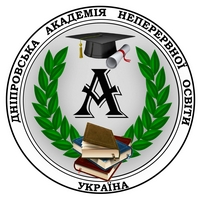THE IMPACT OF ARTIFICIAL INTELLIGENCE TECHNOLOGY ON THE TRANSFORMATION OF MODERN EDUCATIONAL SPACE
Abstract
Artificial intelligence is already being used in the educational space in different countries of the world to predict, analyze and model the learning environment. It is possible to define at least three main areas of use of artificial intelligence in the modern educational space. First, artificial intelligence is used to personalize learning because it can analyze data about a student's success and his learning style and dynamically adjust learning materials and tasks to his individual needs. Second, artificial intelligence is used to improve learning outcomes because it can analyze large amounts of data to identify patterns and trends that can help improve teaching methods and predict student performance. Third, artificial intelligence in general enables the process of learning automation as it can automate tasks such as lesson planning, journaling, assessment and grading, and can be used to create personalized learning materials. Third, artificial intelligence generally supports the process of automating learning, as it can handle tasks such as lesson planning, journaling, assessment and grading, and can be used to create personalised learning materials. At the same time, the use of artificial intelligence in the educational environment is at an early stage and raises a number of ethical and practical problems that will need to be solved in the near future. This publication analyzes the main trends of the influence of artificial intelligence technology on the transformation of the modern educational space. The main problems and digital possibilities of using artificial intelligence technology in the educational environment are considered. In general, the analysis of different views on the introduction of artificial intelligence into the education system suggests that it is possible that in the near future society will need to rethink the social role of education and the learning environment. The traditional format of education offered and provided by educational institutions today may be imperfect in the conditions of the growing role of digital technologies and the use of artificial intelligence. Accordingly, the new format of obtaining information and knowledge will require from modern teachers not only basic knowledge and skills necessary for the organization of the educational process, but also an understanding of the very essence of artificial intelligence technology.
References
2. Візнюк І., Буглай Н., Куцак Л., Поліщук А., Киливник В. Використання ШІ в освіті. Сучасні інформаційні технології та інноваційні методики навчання в підготовці фахівців: методологія, теорія, досвід, проблеми. 2021. Вип. 59. С. 14–22. DOI: https://doi.org/10.31652/2412-1142-2021-59-14-22.
3. Візнюк І. М., Буглай Н. М., Куцай Л. В., Поліщук А. С., Киливник В. В. Використання штучного інтелекту в освіті. Сучасні інформаційні технології та інноваційні методики навчання в підготовці фахівців: методологія, теорія, досвід, проблеми. 2021. № 59. С. 14–22. DOI: https://doi.org/10.31652/2412-1142-2021-59-14-22.
4. Засанська Г. М., Думас І. Р. Інноваційні форми, методи і технології навчання. Modern research in world science: proceedings of the 11th International scientific and practical conference (Lviv, 29–31 January, 2023 r.). Lviv. 2023. С. 660–667. URL: https://elartu.tntu.edu.ua/bitstream/lib/41615/1/MODERN-RESEARCH-IN-WORLDSCIENCE-29-31.01.23.pdf#page=660 (дата звернення: 22.08.2024).
5. Певень К. О., Хміль Н. А., Макогончук Н. В. Вплив штучного інтелекту на зміну традиційних моделей навчання та викладання: аналіз технологій для забезпечення ефективності індивідуальної освіти. Перспективи та інновації науки. 2023. № 11 (29). С. 306–316. DOI: https://doi.org/10.52058/2786-4952-2023-11(29)-306-316.
6. Рижова І., Павлюк О., Зоря О., Северин К., Бобровський І. Вплив цифрових технологій на освіту в епоху четвертої промислової революції. Humanities Studies. 2023. № 16 (93). С. 144–159. DOI: https://doi.org/10.32782/hst-2023-16-93-15.
7. Emmert-Streib F., Yli-Harja O., Dehmer M. Artificial Intelligence: A Clarification of Misconceptions, Myths and Desired Status. Frontiers in Artificial Intelligence. 2020. Vol. 3. URL: https://doi.org/10.3389/frai.2020.524339 (дата звернення: 19.06.2024).
8. Popenici S. A. D., Kerr S. Exploring the impact of artificial intelligence on teaching and learning in higher education. Research and practice in technology enhanced learning. 2017. Vol. 12. № 1. URL: https://doi.org/10.1186/s41039-017-0062-8 (дата звернення: 10.07.2024).
9. Reid E. A. New pedagogical directions. Changing Australian Education. 2020. P. 254–270. URL: https://doi.org/10.4324/9781003115144-15 (дата звернення: 09.08.2024).
10. Rudenko-Morgun O. I., Arkhangelskaya A. L., Makarova N. S. Intelligent interlocutors in teaching language through distance learning education. Artificial intelligence in higher education. Boca Raton, 2022. P. 185–222. URL: https://doi.org/10.1201/9781003184157-10 (дата звернення: 19.06.2024).
11. Sethi K., Chauhan S., Jaiswal V. Artificial intelligence in higher education. Impact of AI technologies on teaching, learning, and research in higher education. 2021. P. 1–29. URL: https://doi.org/10.4018/978-1-7998-4763-2.ch001 (дата звернення: 20.08.2024).
12. Svec V., Pavlicek V., Ticha I. Teaching tacit knowledge: can artifical inteligence help?. Journal on Efficiency and Responsibility in Education and Science. 2014. Vol. 7. № 3–4. P. 87–94. URL: https://doi.org/10.7160/eriesj.2014.070307 (дата звернення: 18.07.2024).
13. Taulli T. Machine Learning. Artificial Intelligence Basics. Berkeley, CA, 2019. P. 39–67. URL: https://doi.org/10.1007/978-1-4842-5028-0_3 (дата звернення: 17.07.2024).

 ISSN
ISSN  ISSN
ISSN 

